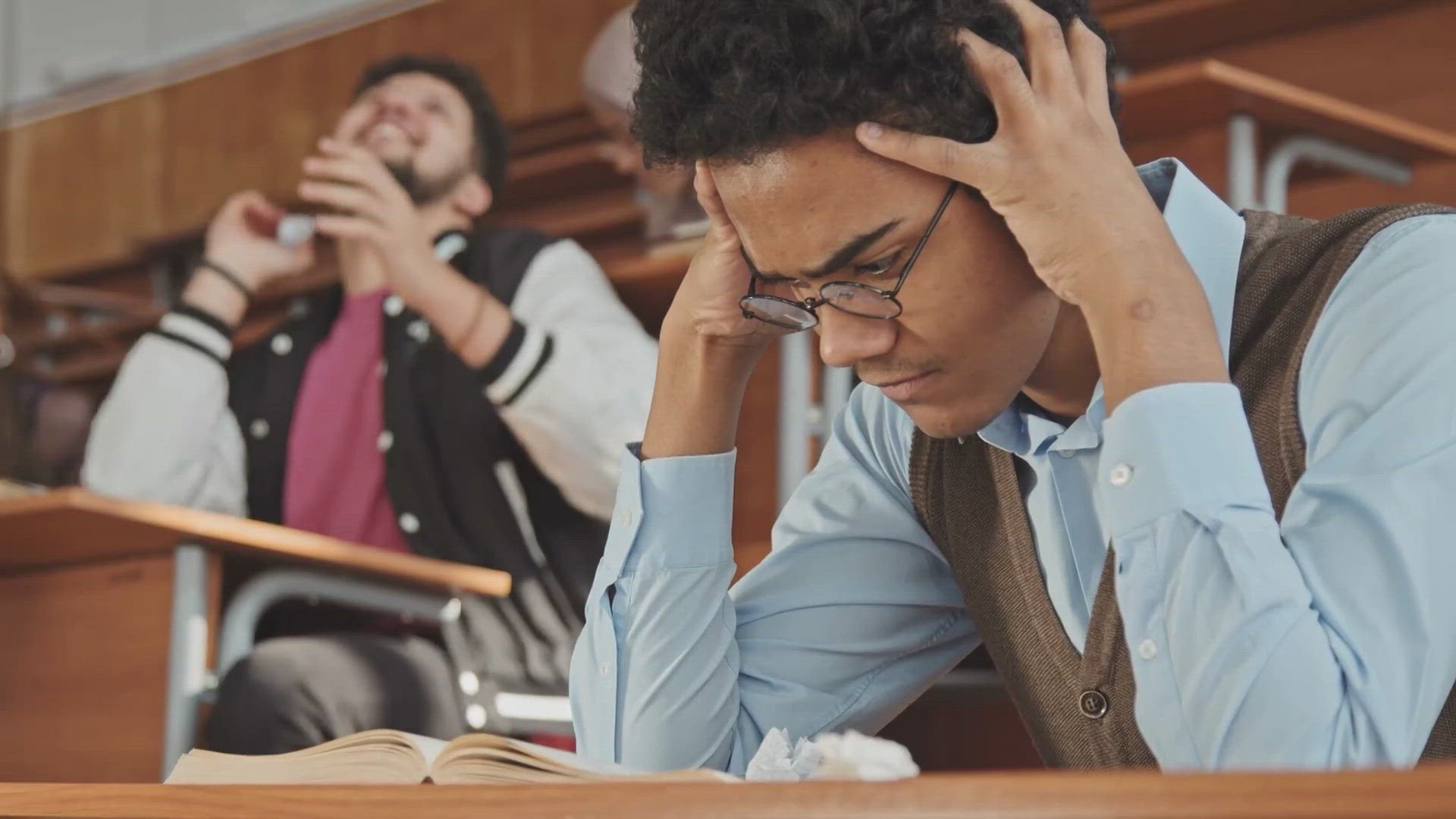SAN ANTONIO — Going back to school or to school for the first time can be tough for some families if the child is stressed about it. But the fear of going back to school can develop into PTSD if there is past trauma.
This isn't just the case for younger students, but also for college students who have already been through 12 grades of school experience, likely not all good, or all bad. But it's the bad that often sticks with you.
Dr. Frank Anderson, a trauma specialist told us, "These kids that are in college right now, are the kids that were sitting at home during the global pandemic."
A second reason students may have additional stress is increased use of social media.
"These kids are raising themselves with each other because of technology and they're not equipped. So they have more anxiety," Dr. Anderson said. "They have more trauma. They have more PTSD and mental health issues."
A study reported in the Lumina Foundation in conjunction with Gallup found 35% of current and future college students considered dropping out of school in the prior six months. 54% reported emotional stress and 43% reported mental health as the reason they wanted to leave college, with many thinking going to school is like going into an education battle.
Dr. Anderson added, "Here we go again. Right? So there's going to be dread. There's going to be avoidance. There's going to be numbing and detached feelings. Those are all symptoms of PTSD."
Dr. Anderson says having a personal connection with people is extremely important.
"I will say that I think it's really important for people to be aware of is trauma blocks, love and connection, trauma blocks who we inherently are," Dr. Anderson said. "And it's in fact love and connection that heals trauma."
Dr. Anderson says there are ways to deal with PTSD. He advised, "Number one is having awareness. Most people have this. I don't have trauma. That's not me. That happens to people who are in war, right? So people I want to bring more awareness to. What are the common symptoms and responses that may be related to something underneath that was traumatic or overwhelming? So I really want to bring awareness first be to the people now."
He also says to follow what he calls "The Three Ts."
"There's this trauma response. Because the responses that we have because of our trauma are actually trying to protect us," Dr. Anderson said. "So I want everybody to be aware that the behaviors are an attempt at protection. Trust that you have what you need inside of yourself to heal and to create safe relationships. I want people to get connected to the truth of their experience and what happened to them, and then transforming the trauma by really having a collective experience to feel loved, seen and connected in a way that you didn't during your traumatic experience, allows you to truly release the symptoms and the feelings and the thoughts and the behaviors that you carry connected to the trauma. Last thing I'd say is, that's when people can truly take back their power and choose to forgive the person who harm themselves, but ultimately forgive yourself for whatever you feel like you're holding."
You can check out Dr. Anderson’s book, a story about truth, trauma and transformation, called “To Be Loved” on Amazon.

